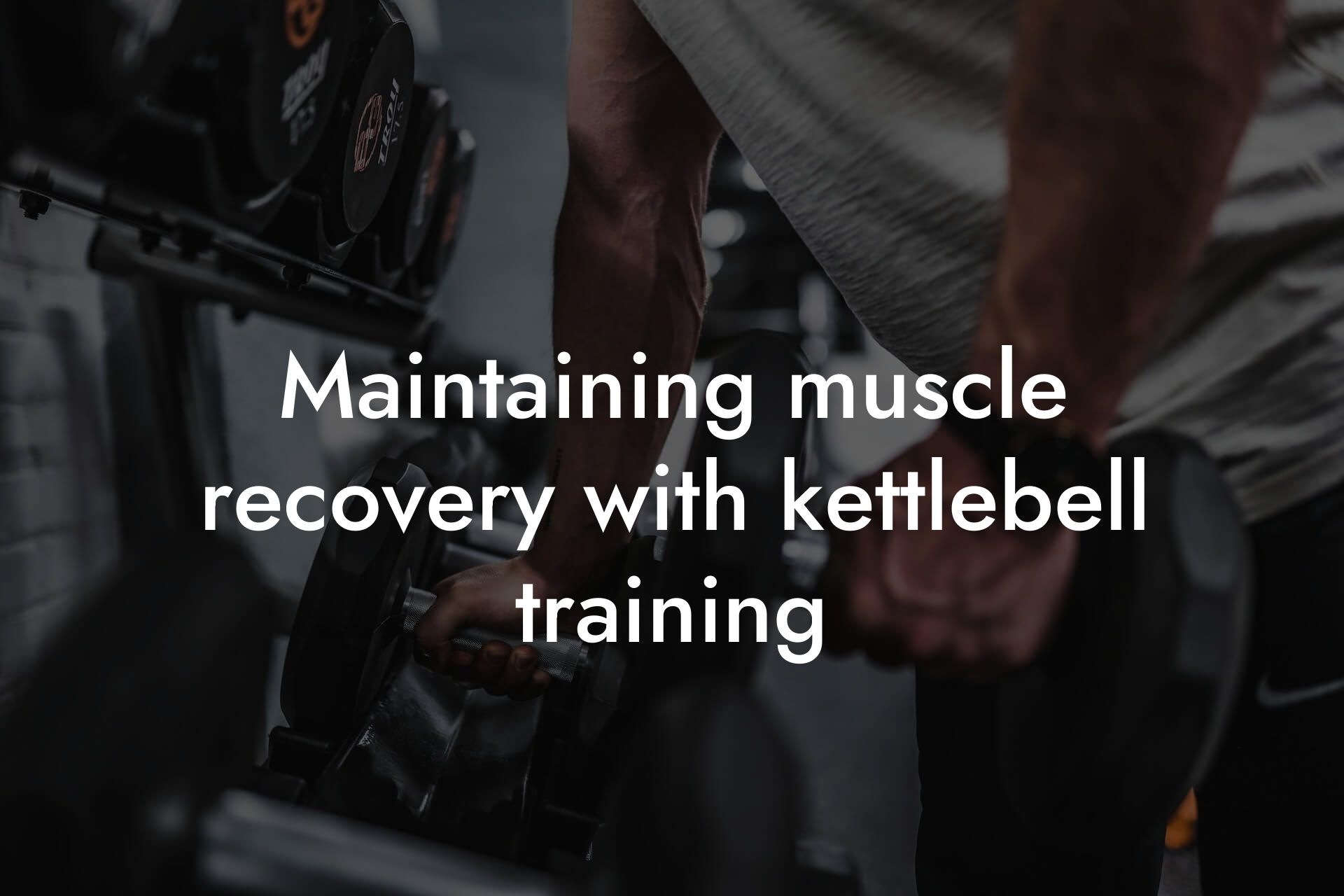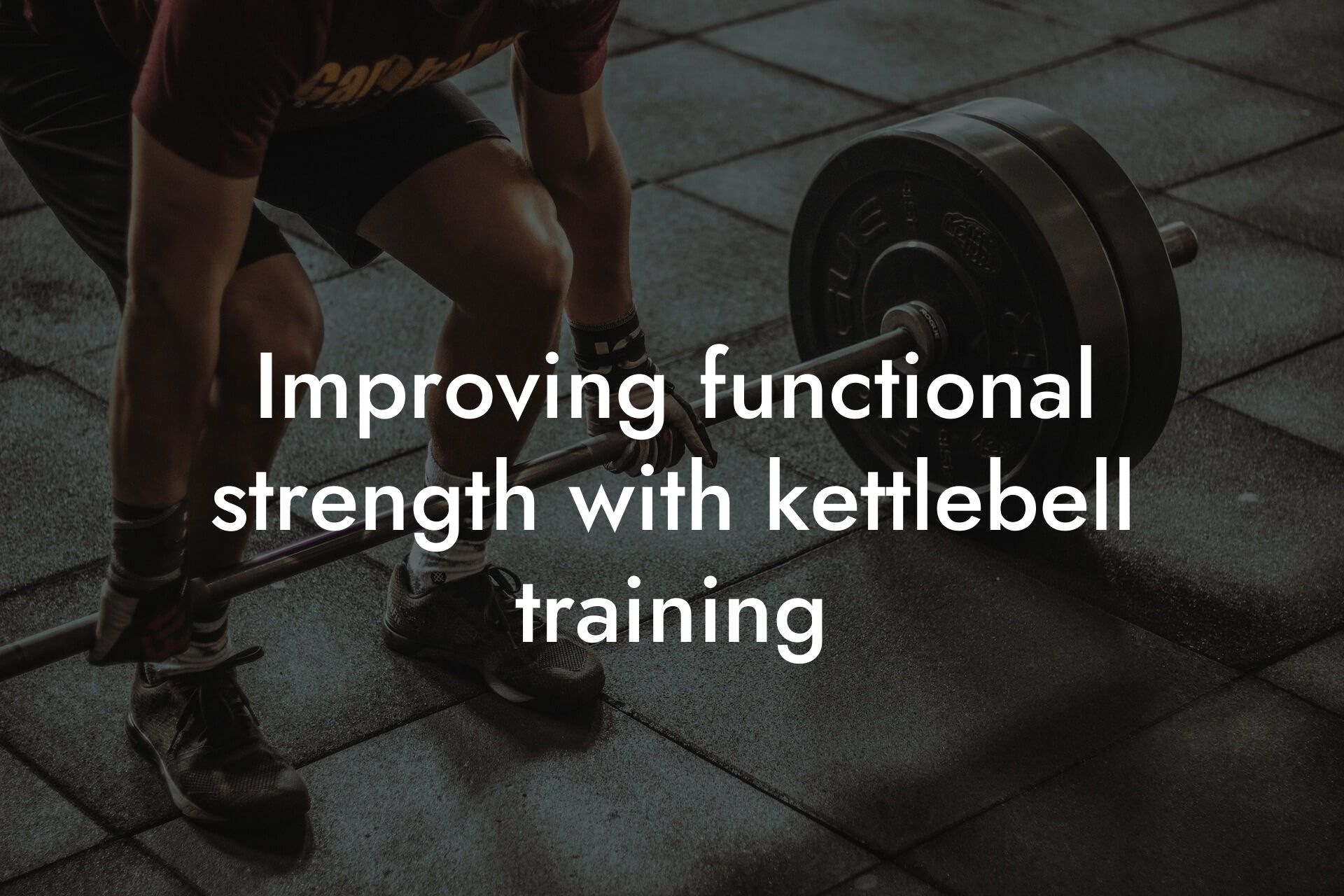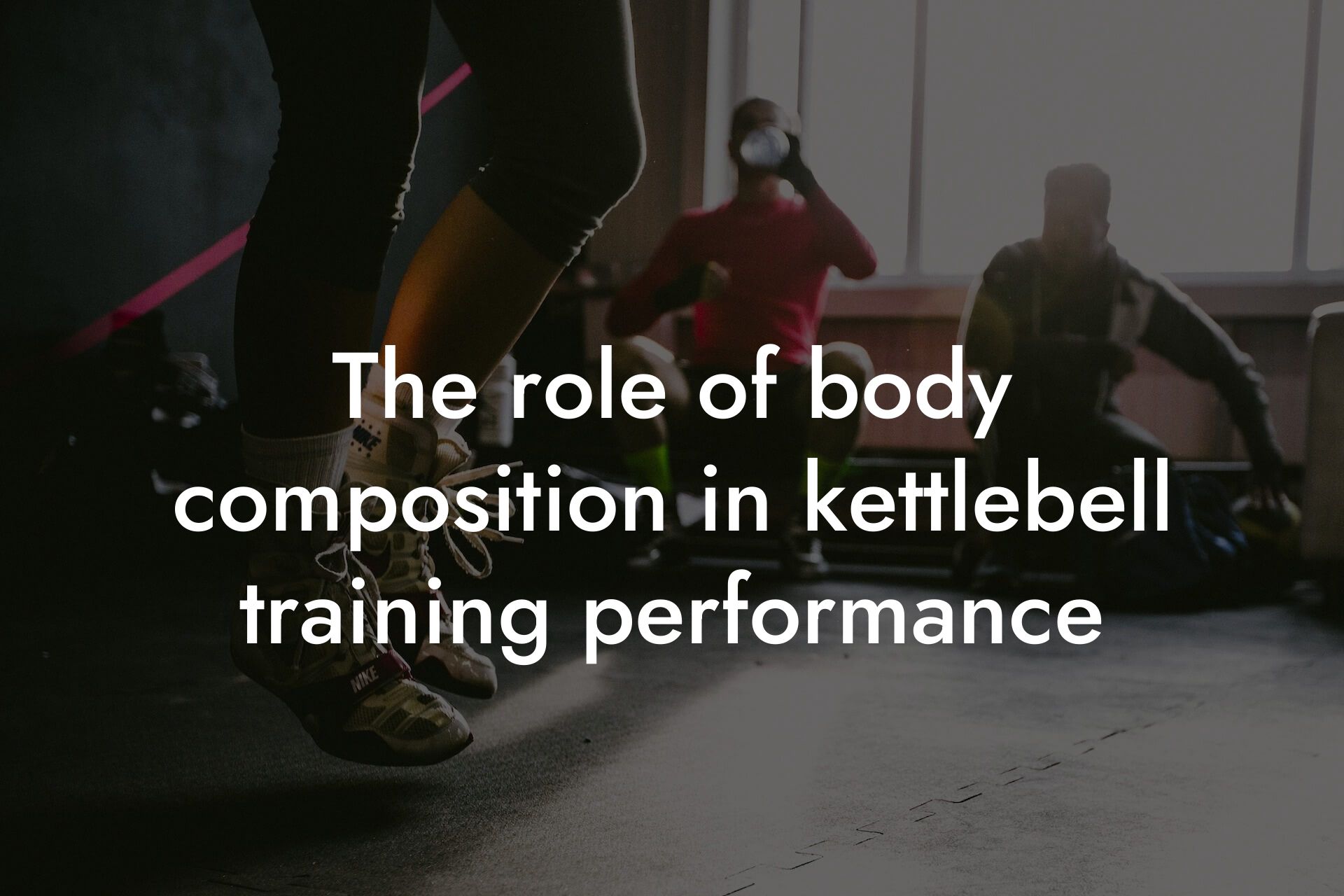As a high-earning professional, you understand the importance of maintaining a strong physical appearance and optimal body composition. For kettlebell training athletes, this is especially crucial, as it can directly impact performance and overall health. One valuable tool that can help you achieve your fitness goals is a DEXA (Dual-Energy X-ray Absorptiometry) scan. In this article, we'll explore the benefits of DEXA scans for kettlebell training athletes and how they can help you take your training to the next level.
Table of Contents
What is a DEXA Scan?
A DEXA scan is a non-invasive, low-radiation medical imaging test that measures bone density, body composition, and fat distribution. It's commonly used to diagnose osteoporosis, but its applications extend far beyond that. For athletes, a DEXA scan provides a comprehensive picture of their body composition, allowing them to make data-driven decisions about their training and nutrition.
Benefits of DEXA Scans for Kettlebell Training Athletes
Kettlebell training athletes can reap numerous benefits from incorporating DEXA scans into their training regimen. Here are some of the key advantages:
1. Accurate Body Composition Analysis: A DEXA scan provides a precise breakdown of your body fat percentage, lean mass, and bone density. This information is essential for kettlebell training athletes, as it helps them optimize their diet and training to achieve their desired physique.
2. Personalized Nutrition Planning: With a DEXA scan, you can identify areas where you need to improve your nutrition. By adjusting your diet to support your specific body composition goals, you can optimize your performance and recovery.
3. Injury Prevention and Management: DEXA scans can detect early signs of osteoporosis, stress fractures, and other bone-related injuries. This allows kettlebell training athletes to take proactive measures to prevent injuries and develop targeted training programs to strengthen vulnerable areas.
4. Optimized Training Programs: By analyzing your body composition and bone density, you can create a tailored training program that targets your specific needs. This leads to more efficient progress, improved performance, and reduced risk of injury.
5. Enhanced Recovery: DEXA scans can help you identify areas of your body that require extra attention during recovery. By focusing on these areas, you can accelerate your recovery, reduce muscle soreness, and get back to training faster.
How DEXA Scans Can Improve Kettlebell Training Performance
Kettlebell training athletes can use DEXA scans to optimize their performance in several ways:
1. Increased Power and Strength: By identifying areas of low bone density, you can develop targeted exercises to strengthen those areas, leading to increased power and strength.
2. Improved Endurance: DEXA scans can help you optimize your body composition for endurance-based kettlebell exercises, allowing you to perform at a higher intensity for longer periods.
3. Enhanced Agility and Mobility: By analyzing your body composition and bone density, you can develop training programs that improve your agility and mobility, making you a more well-rounded athlete.
What to Expect from a DEXA Scan
If you're considering getting a DEXA scan, here's what you can expect:
1. A Quick and Painless Procedure: The scan itself takes only a few minutes, and you'll be lying down on a comfortable table during the process.
2. A Comprehensive Report: After the scan, you'll receive a detailed report outlining your body composition, bone density, and fat distribution.
3. Personalized Consultation: A qualified healthcare professional will review your results with you, providing guidance on how to interpret the data and create a personalized training and nutrition plan.
How Tano Performance Group Can Help
At Tano Performance Group, we understand the importance of data-driven training and nutrition. Our state-of-the-art DEXA machine provides accurate and reliable results, helping you make informed decisions about your fitness journey. Our team of experts will work with you to create a personalized training and nutrition plan, ensuring you achieve your goals and maintain optimal body composition.
In conclusion, DEXA scans are a valuable tool for kettlebell training athletes looking to optimize their performance and achieve their desired physique. By providing accurate body composition analysis, personalized nutrition planning, and injury prevention strategies, DEXA scans can help you take your training to the next level. At Tano Performance Group, we're committed to helping high-earning professionals like you achieve their fitness goals and maintain optimal body composition. Contact us today to learn more about our DEXA scan services and take the first step towards unlocking your full potential.
Frequently Asked Questions
What is a DEXA scan and how does it relate to kettlebell training?
A DEXA (Dual-Energy X-ray Absorptiometry) scan is a non-invasive medical test that measures bone density, body composition, and lean mass. For kettlebell training athletes, a DEXA scan can provide valuable insights into their body composition, helping them optimize their training and nutrition to achieve their fitness goals.
What are the benefits of using DEXA scans for kettlebell training athletes?
DEXA scans offer several benefits for kettlebell training athletes, including accurate body fat percentage measurements, lean mass assessment, and bone density evaluation. This information can help athletes optimize their training, nutrition, and recovery to improve performance, reduce injury risk, and enhance overall health.
How does a DEXA scan measure body composition?
A DEXA scan uses low-level X-rays to measure the density of different tissues in the body, including bone, lean mass, and fat mass. This information is then used to calculate body fat percentage, lean mass, and other body composition metrics.
What is the difference between body fat percentage and lean mass?
Body fat percentage refers to the percentage of your body weight that is composed of fat. Lean mass, on the other hand, refers to the weight of your muscles, bones, and other non-fat tissues. Understanding the balance between body fat percentage and lean mass is crucial for kettlebell training athletes, as it can impact performance and overall health.
How can a DEXA scan help kettlebell training athletes with weight loss?
A DEXA scan can help kettlebell training athletes with weight loss by providing an accurate measurement of body fat percentage. This information can be used to develop a targeted nutrition and training plan to reduce body fat and reveal lean muscle mass.
Can a DEXA scan help kettlebell training athletes with muscle gain?
Yes, a DEXA scan can help kettlebell training athletes with muscle gain by providing an accurate measurement of lean mass. This information can be used to develop a targeted training and nutrition plan to increase lean mass and improve overall muscle development.
How does a DEXA scan measure bone density?
A DEXA scan measures bone density by calculating the density of the bones in the spine, hips, and other areas of the body. This information is then used to assess bone health and identify any potential risks for osteoporosis or fractures.
Why is bone density important for kettlebell training athletes?
Bone density is important for kettlebell training athletes because it can impact their risk of injury. Kettlebell training involves heavy lifting and repetitive movements, which can put stress on the bones. Maintaining strong bone density can help reduce the risk of fractures and other bone-related injuries.
How often should kettlebell training athletes get a DEXA scan?
The frequency of DEXA scans depends on individual goals and needs. For kettlebell training athletes, it's recommended to get a DEXA scan every 6-12 months to track progress, identify areas for improvement, and adjust training and nutrition plans accordingly.
What are the risks associated with DEXA scans?
DEXA scans are generally safe and non-invasive, but there are some risks to be aware of, including radiation exposure (although this is very low) and incorrect measurements due to factors such as metal implants or excessive movement during the scan.
How long does a DEXA scan take?
A DEXA scan typically takes around 10-15 minutes to complete, although this may vary depending on the specific machine and the individual's body composition.
Is a DEXA scan painful?
No, a DEXA scan is not painful. It's a non-invasive procedure that doesn't require any injections, incisions, or other invasive techniques.
Can I get a DEXA scan if I'm pregnant or breastfeeding?
It's generally not recommended to get a DEXA scan if you're pregnant or breastfeeding, as the radiation exposure, although low, may pose a risk to the fetus or baby. However, it's best to consult with a healthcare professional for personalized advice.
How do I prepare for a DEXA scan?
To prepare for a DEXA scan, avoid eating or drinking for at least 2 hours prior to the scan, wear loose, comfortable clothing, and remove any metal objects such as jewelry or glasses.
What do I need to bring to a DEXA scan appointment?
Bring any relevant medical information, such as previous DEXA scan results or medical history, and wear comfortable clothing that allows for easy movement.
Can I get a DEXA scan if I have metal implants or prosthetics?
It's possible to get a DEXA scan with metal implants or prosthetics, but it's essential to inform the technician beforehand to ensure accurate measurements and to take necessary precautions.
How do I interpret the results of a DEXA scan?
A healthcare professional will typically interpret the results of a DEXA scan, providing a detailed report on body composition, bone density, and other metrics. They can help you understand the results and develop a plan to achieve your fitness goals.
Can I use a DEXA scan to track my progress over time?
Yes, a DEXA scan is an excellent way to track progress over time, allowing you to see changes in body composition, bone density, and other metrics. This information can be used to adjust training and nutrition plans to optimize results.
How does a DEXA scan compare to other body composition measurement methods?
A DEXA scan is considered one of the most accurate methods for measuring body composition, offering a more detailed and comprehensive picture than other methods such as bioelectrical impedance analysis (BIA) or skinfold measurements.
Is a DEXA scan covered by insurance?
Insurance coverage for DEXA scans varies depending on the provider and the specific circumstances. It's best to check with your insurance provider to determine if a DEXA scan is covered.
How much does a DEXA scan cost?
The cost of a DEXA scan varies depending on the location, provider, and other factors. On average, a DEXA scan can cost anywhere from $50 to $200.
What are the benefits of working with a healthcare professional to interpret DEXA scan results?
Working with a healthcare professional to interpret DEXA scan results can provide personalized guidance, help you develop a targeted training and nutrition plan, and ensure that you're using the results to optimize your fitness goals.
How can I use DEXA scan results to improve my kettlebell training?
DEXA scan results can be used to identify areas for improvement in your kettlebell training, such as increasing lean mass, reducing body fat percentage, or improving bone density. This information can be used to develop a targeted training plan to optimize results.
What are the limitations of DEXA scans for kettlebell training athletes?
While DEXA scans are highly accurate, they do have some limitations, including the potential for incorrect measurements due to factors such as metal implants or excessive movement during the scan. Additionally, DEXA scans only provide a snapshot of body composition and bone density at a single point in time.
Here are some related articles you might love...
- Maintaining muscle recovery with kettlebell training
- Improving functional strength with kettlebell training
- The role of body composition in kettlebell training performance
- Reducing body fat for better kettlebell workout results
- The importance of bone density in kettlebell fitness
- Nutrition strategies for kettlebell enthusiasts
- Strength training tips specific to kettlebell exercises
- Balancing strength, speed, and flexibility in kettlebell workouts
Zak Faulkner
Zak Faulkner is a leading authority in the realm of physical health and body composition analysis, with over 15 years of experience helping professionals optimise their fitness and well-being. As one the experts behind Tano Performance Group, Zak has dedicated his career to providing in-depth, science-backed insights that empower clients to elevate their physical performance and overall health.
With extensive knowledge of DEXA technology, Zak specializes in delivering comprehensive body assessments that offer precise data on body fat, muscle mass, bone density, and overall physique. His expertise enables individuals to make informed decisions and achieve their fitness goals with accuracy and confidence. Zak’s approach is rooted in a deep understanding of human physiology, combined with a passion for helping clients unlock their full potential through personalised strategies.
Over the years, Zak has earned a reputation for his commitment to excellence, precision, and client-focused service. His guidance is trusted by top professionals who demand the best when it comes to their health. Whether advising on fitness programs, nutritional strategies, or long-term wellness plans, Zak Faulkner’s insights are a valuable resource for anyone serious about taking their health and fitness to the next level.
At Tano Performance Group, Zak continues to lead our Content Team revolutionising how professionals approach their physical health, offering unparalleled expertise that drives real results.




